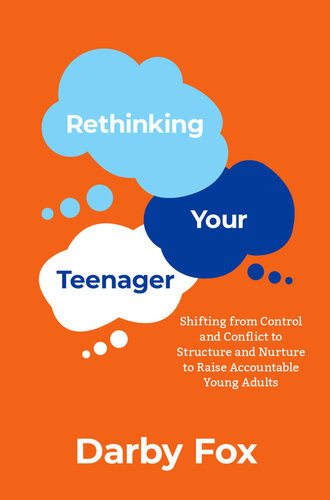

Most ebook files are in PDF format, so you can easily read them using various software such as Foxit Reader or directly on the Google Chrome browser.
Some ebook files are released by publishers in other formats such as .awz, .mobi, .epub, .fb2, etc. You may need to install specific software to read these formats on mobile/PC, such as Calibre.
Please read the tutorial at this link: https://ebookbell.com/faq
We offer FREE conversion to the popular formats you request; however, this may take some time. Therefore, right after payment, please email us, and we will try to provide the service as quickly as possible.
For some exceptional file formats or broken links (if any), please refrain from opening any disputes. Instead, email us first, and we will try to assist within a maximum of 6 hours.
EbookBell Team

4.4
52 reviewsThe teenage years... parents fear this stage, dreading it even while watching their adorable toddlers explore the world. When it arrives, they try to control their teenager, in turn causing their teenager to push back more intensely. It's a natural instinct on both sides: teenagers are changing in every way while trying to assert their independence, and parents are faced with the challenge of coming up with rules, expectations, and standards for behavior without a genuine understanding of what is happening. But the result of this pattern is a parent-child relationship defined by conflict and reactivity—a breeding ground for stress, anger, and anxiety, all of which reinforcing those same cultural stereotypes and worst fears. But it doesn't have to be this way. In this book, family therapist Darby Fox challenges parents to redefine the goals of adolescence by reorienting their focus from what they want their child to be to on who they want their child to be. Darby not only equips parents with the insight to understand the changes taking place in their child's brain and body and support their adolescent's bid for independence, but also offers an approach that allows parents to engage their adolescent in a relationship instead of struggling in an endless battle for control. The book is organized around a series of persistent myths about adolescence, each of which the author tears down with a combination of cutting edge neuroscience research, developmental psychology, and her own mix of clinical observations and experience raising four children. Darby offers a new model for the parent-child relationship, encouraging parents to let go of the attempt to control their teenager and focus instead on creating mutual respect, providing structure and nurture, and encouraging independence in their developing teenager. She walks through the keys to combining structure and nurture and teaches parents how to connect with their teen while holding them accountable for their behavior. If parents approach teen years with the same thoughtful preparation, sense of awe and wonder, and responsibility that they do the early childhood years, it can be an enjoyable and rewarding developmental stage that deepens, rather than damages, parent-child relationships.